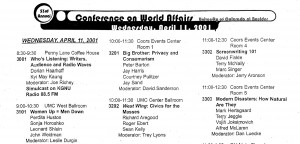Pills, Pills, Pills
This assignment could not have come at a better time because my family gathered for a barbeque over the weekend. At the barbeque, I had the opportunity to ask several family members and friends about their knowledge regarding the medications that have been prescribed to them by a physician. Many were not on a daily drug regimen therefore I asked them to explain the indications and side effects for common over the counter (OTC) drugs such as Tylenol, Aleve and aspirin.
To my surprise, about seventy percent of the people for which I sampled (n=14) were knowledgeable about their personal daily medications. This did not apply to OTC drugs or drugs they were unfamiliar with. They were able to explain what their medication was for, discuss the common side effects they had personally experienced, and also name both the generic and trade name for each. Their extensive knowledge on their medications can be explained in part, because they have been able to successfully manage their chronic diseases for years or because they have work closely in the medical or healthcare field.
On the other hand, the remaining twenty percent (n=6) had a difficult time explaining medication indications, side effects or the contraindication for some of the more common OTC drugs. Reoccurring key themes included 1) following physician orders without question, 2) inability to recall the information or 3) simply never bothered to look them up. The identification of side effects did not pose too much of a problem because lets face it seems that every medication can cause stomach pain, nausea, vomiting and diarrhea. Measuring the proper dosing was a bigger problem than I thought. A couple of people mentioned eyeballing what they assumed to be a teaspoon verse a tablespoon for liquid medications. Others even admitted to taking more than what the label clearly stated. My grandmother referred me to my father who helps her manage her medications. Unfortunately these examples are not uncommon, especially for individuals whom English is not the primary language or are no longer unable to manage their health conditions due to their age as in the case of my grandmother. Fortunately, this assignment opened the discussion about medication safety and proper drug management in my family.
Homeopathic and herbal medications are very common in Mexican heritage and culture. Many of these remedies have been passed down from generations to generation and are built upon hope and faith. I can remember my grandfather going to the back yard to cut aloe vera leafs to treat minor cuts instead of going to the store to by Neosporin. My grandmother is known for grinding several herbs together to make remedy teas for our ailing sore throats. Unfortunately many of these alternative treatment measures have not proven to work or provide better results. Some herbal medicines can in fact be toxic and result in detrimental effects including death. Nonetheless, these traditions have been strongly ingrained and will continue to be performed for years to come.





